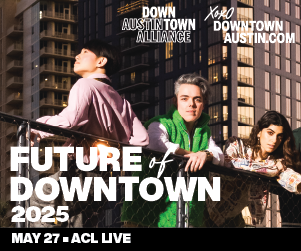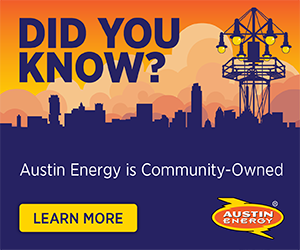About the Author
Mike Kanin is the Publisher of the Austin Monitor. As such, he doesn't report on much--aside from the workings of the Monitor--any more. In his previous life as a freelance journalist, Kanin has written for the Washington City Paper, the Washington Post's Express, the Boston Herald, Boston's Weekly Dig, the Austin Chronicle, and the Texas Observer.
Newsletter Signup
The Austin Monitor thanks its sponsors. Become one.
Most Popular Stories
- Facing overwhelmingly negative feedback, city drafts refinements to residential permit parking program
- Two Years after the Austin Police Oversight Act passed, Community Police Review Commission finally meets
- New Data Center Planned for Lockhart in 2028
- Changes on the way for Austin’s scooters
- City eyes expanded district plan for downtown and beyond
-
Discover News By District
Council seeks hard numbers on economic impact of Formula 1 race
Monday, January 28, 2013 by Michael Kanin
Council members will look to detailed reports about last November’s inaugural Formula 1 race in order to determine its true economic impact. They asked for the details at last week’s meeting of the Council’s Audit and Finance Committee.
“The comparison of interest to me…is that additional money to our general fund versus the extra expenses directly to the city,” said Council Member Laura Morrison. “Those estimates that you come up with are going to be very interesting to me because I want to be sure that we’re working this in such a way that the extra cost is not going to be sapping our general revenue fund so that we have to decrease service to our parks and libraries – that’s the key question to me.”
Morrison’s call comes on the heels of quite a bit of initial evidence that the race was an economic boon for the city. Still, even if those numbers do not hold up, it is apparent that
According to Economic Growth Deputy Director Rodney Gonzales, Formula 1 weekend produced an increase in taxable hotel receipts from $43.3 million at the same time in 2011 to $66.7 million for the recorded period that corresponds to the event. Sales tax increases went from about $11.7 million in 2011 to $12.5 million over the same period.
Still, not all merchants saw an increase in sales over Formula 1 weekend. Gonzales noted that many Austinites might have elected to stay home rather than face what was widely forecast as a traffic apocalypse.
Gonzales pointed to media reports about the impact of the event. “Some businesses on
In addition to economic impacts, Council Member Kathie Tovo asked for a detailed look at 311 complaints and 911 calls over the weekend of the event. That data would illustrate whether the event made any kind of an impact on normal city emergency operations.
This will likely be factored in to the overall cost-benefits analysis that will result from the broader study. In addition to 311 and 911 data, Tovo and Morrison will look for direct and indirect city financial costs to compare against revenue generated by the race.
Spelman will also look forward to the study. Though Gonzales offered Spelman and his colleagues an early peek at revenue estimates, Spelman wasn’t quite ready to completely trust that data. He said he would wait until detailed fiscal analyses were available to make a call on the event’s economic impact.
Spelman also asked Gonzales if the traffic control, the “all-hands-on-deck” for the event approach, and other administrative lessons learned by city officials over F1 weekend could be expanded to other city events.
Gonzales said that they could. He pointed specifically to comprehensive traffic monitoring and the Capital Metro downtown bus loop as possible targets for other future events, among other ideas. “There were some take-aways from what we put in to the planning efforts for Formula 1 that certainly can be applied to other events that we host,” Gonzales said.
Spelman then pushed his line of questioning a bit further. “Formula 1 was the first example I’ve been aware of where somebody – in this case (Gonzales) – was appointed the czar of all things city-related to Formula 1,” he said. “Did that work well?”
Gonzales picked up on Spelman’s direction. “With regard to the other events – South by Southwest, (Austin City Limits) – they work well, they do,” he offered. “I’m certain that they could also benefit from something like a one-point person as well.”
More economic details are expected in the coming months. Economic reports are due from both the Circuit of the Americas track and the office of State Comptroller Susan Combs.
You're a community leader
And we’re honored you look to us for serious, in-depth news. You know a strong community needs local and dedicated watchdog reporting. We’re here for you and that won’t change. Now will you take the powerful next step and support our nonprofit news organization?




